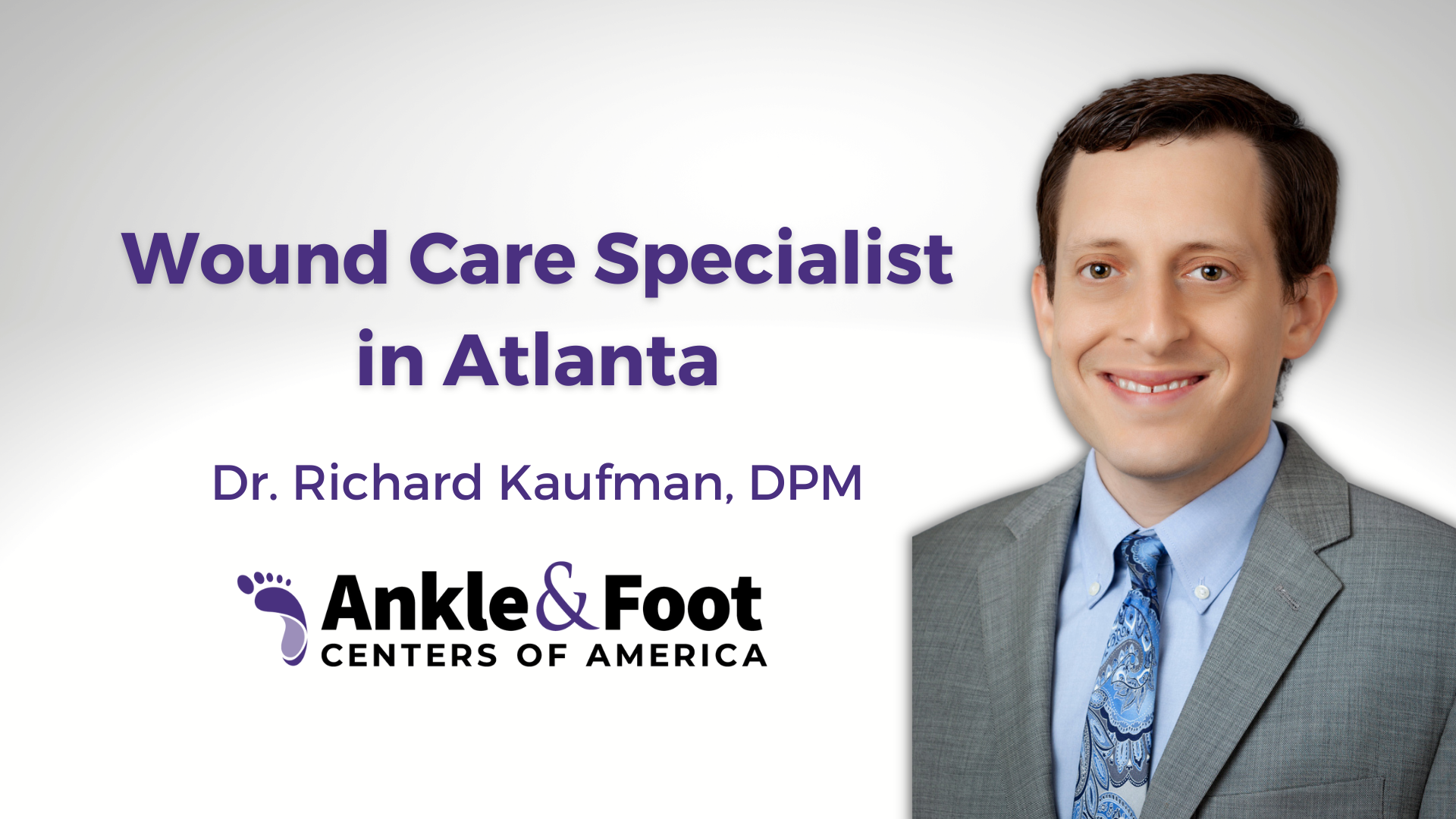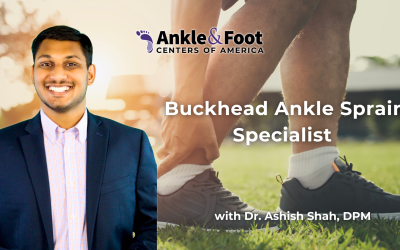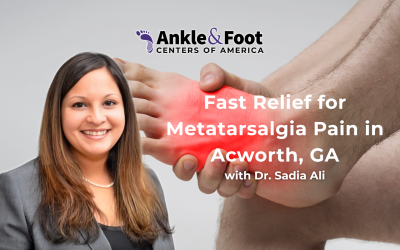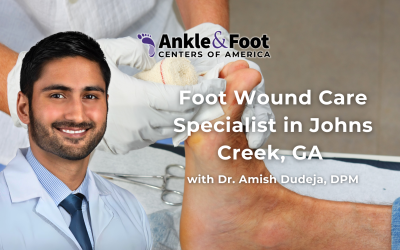Lower extremity wound care is a critical aspect of healthcare, as it can help prevent long-term complications and improve quality of life. Dr. Richard Kaufman, DPM with the Ankle & Foot Centers of America is one of the best wound care specialists in Atlanta, GA. This blog post will discuss different types of wounds that occur in lower extremities and their treatments, including amniotic tissue grafting and advanced wound care treatments. It will also cover dressings and management strategies to ensure successful outcomes for patients seeking professional wound care for their lower extremity wounds.
Table of Contents
Diabetic Foot Ulceration
Diabetic foot ulcers are one of the most common lower extremity wound issues. These ulcers can form as a result of poor circulation and nerve damage caused by diabetes, and they can lead to serious infections if left untreated. Risk factors for developing diabetic foot ulcers include uncontrolled blood sugar levels, peripheral neuropathy, decreased sensation in the feet, deformities or trauma to the feet, and poor nutrition. Diagnosis and assessment of diabetic foot ulcers involve physical examination and laboratory testing. Treatment options for diabetic foot ulcers include amniotic tissue grafting, advanced wound care treatments such as negative pressure wound therapy (NPWT) and hyperbaric oxygen therapy (HBOT), offloading techniques including custom-molded shoes or removable cast walkers, and preventive strategies.
Post-traumatic wounds
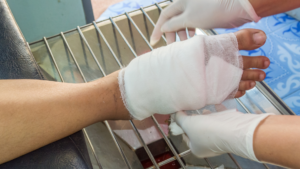 Post-traumatic wounds are another common type of lower extremity wound that can be caused by accidents or trauma. These wounds can range from mild cuts and scrapes to deep lacerations and open fractures. Diagnosis and assessment involve physical examination, laboratory testing, and imaging studies. Treatment options include amniotic tissue grafting, advanced wound care treatments such as NPWT and HBOT, offloading techniques such as custom-molded shoes or removable cast walkers, debridement surgery, antibiotics if necessary, and preventive strategies.
Post-traumatic wounds are another common type of lower extremity wound that can be caused by accidents or trauma. These wounds can range from mild cuts and scrapes to deep lacerations and open fractures. Diagnosis and assessment involve physical examination, laboratory testing, and imaging studies. Treatment options include amniotic tissue grafting, advanced wound care treatments such as NPWT and HBOT, offloading techniques such as custom-molded shoes or removable cast walkers, debridement surgery, antibiotics if necessary, and preventive strategies.
Amniotic tissue grafting
Amniotic tissue grafting is a newer treatment option for lower extremity wounds that has been shown to provide superior outcomes compared to other treatment options. This procedure involves harvesting a piece of placental tissue and placing it over the wound. This graft provides several advantages, including rapid healing time, improved quality of wound healing, decreased inflammation and pain, and reduced scarring. Amniotic tissue grafting has been associated with high success rates for many types of lower extremity wounds.
Advanced Wound Treatments For Complex Cases
Advanced wound care treatments such as NPWT and HBOT have also been used to treat lower extremity wounds. NPWT is a minimally invasive treatment that uses suction to draw out fluids from the wound site while simultaneously providing pain relief, reducing risk of infection, promoting faster healing times, and increasing blood flow to the area. HBOT involves exposing patients to pure oxygen in a pressurized chamber or room to promote wound healing, reduce inflammation and pain, and improve circulation.

Wound Dressing and Management
In addition to these treatment options, patients should follow a few important management strategies for successful outcomes with lower extremity wounds. These include keeping the wound clean and dry, using appropriate dressings as prescribed by their healthcare provider, eating a healthy diet to ensure adequate nutrition, wearing comfortable shoes or orthotics to offload pressure from the area of injury or ulceration, following up with their healthcare provider regularly for assessment and monitoring progress of wound healing.
It is important for patients with lower extremity wounds to seek professional care right away in order to prevent long-term complications and maximize quality of life. Dr. Richard Kaufman at the Ankle & Foot Centers of America is a wound care specialist in Atlanta, GA who has extensive experience in treating lower extremity wounds. He is considered one of the best wound care specialists in Atlanta and can help patients achieve successful outcomes with their lower extremity wounds.

